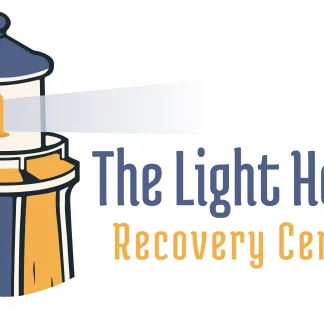Antioch Substance Abuse Programs
Antioch Substance Abuse Programs is an office-based addiction and mental health ...
The Light House Women’s Recovery Center offers residential and office-based addiction and mental health treatment for women in Fresno, California. Services include an intensive outpatient program (IOP) and recovery support groups. They also provide valuable community resources, including mental health services, family support services, and case management.
Treatment at The Light House Women’s Recovery Center begins with a mental health assessment to screen for symptoms of addiction or co-occurring mental health disorders. Programs at The Light House Recovery Center use faith-based practices to treat substance abuse and co-occurring mental health conditions for women ages 18 and up. Women are expected to work and take part in employment/skills training.
The IOP offers individual and group treatment sessions for improved coping skills, peer support, and recovery support. Sessions are held 3-4 days per week.
Recovery support groups offer regular meetings which include mutual-aid support, educational classes, and life-skills training. Meetings are available throughout the day, several days per week.
Self-pay, funding, and sliding-scale options may be available. You’ll want to check with The Light House Women’s Recovery Center to determine the most suitable payment options. If you’d like to use insurance, check with your provider directly, because out-of-network benefits vary.
Contact us for more information: (559) 222-4824

Connect with The Light House Women’s Recovery Center by calling their admissions team directly.
(559) 222-4824 Website Get DirectionsResearch clearly demonstrates that recovery is far more successful and sustainable when loved ones like family members participate in rehab and substance abuse treatment. Genetic factors may be at play when it comes to drug and alcohol addiction, as well as mental health issues. Family dynamics often play a critical role in addiction triggers, and if properly educated, family members can be a strong source of support when it comes to rehabilitation.
Group therapy is any therapeutic work that happens in a group (not one-on-one). There are a number of different group therapy modalities, including support groups, experiential therapy, psycho-education, and more. Group therapy involves treatment as well as processing interaction between group members.
In individual therapy, a patient meets one-on-one with a trained psychologist or counselor. Therapy is a pivotal part of effective substance abuse treatment, as it often covers root causes of addiction, including challenges faced by the patient in their social, family, and work/school life.
Life skills trainings involve all the skills a person must have in order to function successfully in the world. These include time management, career guidance, money management, and effective communication. Truly successful addiction recovery is based on the ability to not only live substance-free, but to thrive. Life skills teaches the practical necessities of functioning in society, which sets clients up for success in life, and therefore sobriety.
Group therapy is any therapeutic work that happens in a group (not one-on-one). There are a number of different group therapy modalities, including support groups, experiential therapy, psycho-education, and more. Group therapy involves treatment as well as processing interaction between group members.
In individual therapy, a patient meets one-on-one with a trained psychologist or counselor. Therapy is a pivotal part of effective substance abuse treatment, as it often covers root causes of addiction, including challenges faced by the patient in their social, family, and work/school life.
Life skills trainings involve all the skills a person must have in order to function successfully in the world. These include time management, career guidance, money management, and effective communication. Truly successful addiction recovery is based on the ability to not only live substance-free, but to thrive. Life skills teaches the practical necessities of functioning in society, which sets clients up for success in life, and therefore sobriety.
In individual therapy, a patient meets one-on-one with a trained psychologist or counselor. Therapy is a pivotal part of effective substance abuse treatment, as it often covers root causes of addiction, including challenges faced by the patient in their social, family, and work/school life.
Life skills trainings involve all the skills a person must have in order to function successfully in the world. These include time management, career guidance, money management, and effective communication. Truly successful addiction recovery is based on the ability to not only live substance-free, but to thrive. Life skills teaches the practical necessities of functioning in society, which sets clients up for success in life, and therefore sobriety.
Life skills trainings involve all the skills a person must have in order to function successfully in the world. These include time management, career guidance, money management, and effective communication. Truly successful addiction recovery is based on the ability to not only live substance-free, but to thrive. Life skills teaches the practical necessities of functioning in society, which sets clients up for success in life, and therefore sobriety.
Antioch Substance Abuse Programs is an office-based addiction and mental health ...
Central California Recovery offers office-based addiction and mental health trea...
King of Kings Community Centers - Men's Recovery Home is a private rehab located...
Adolescent Behavioral Clinic is a private rehab located in Fresno, California. A...